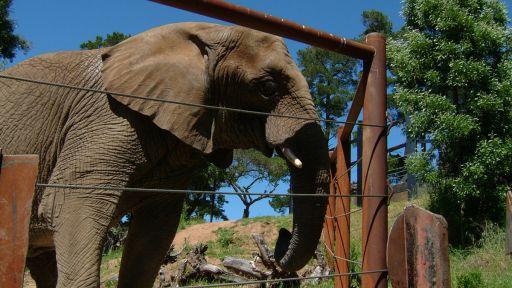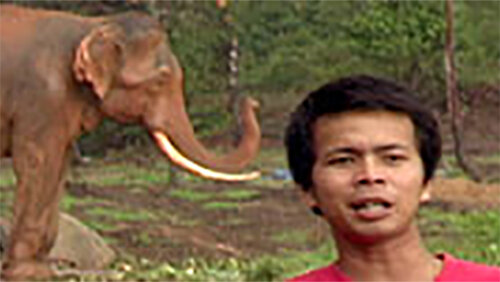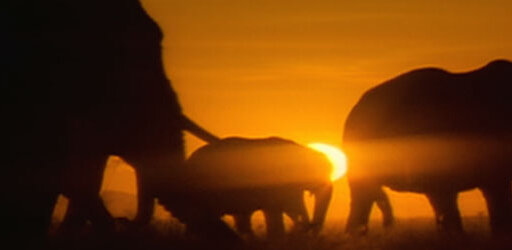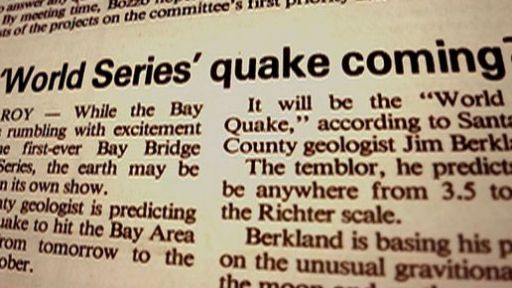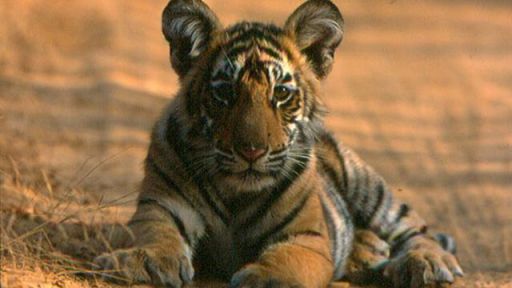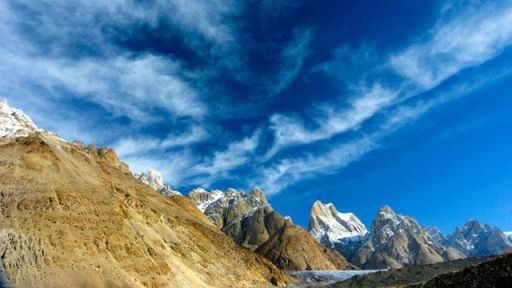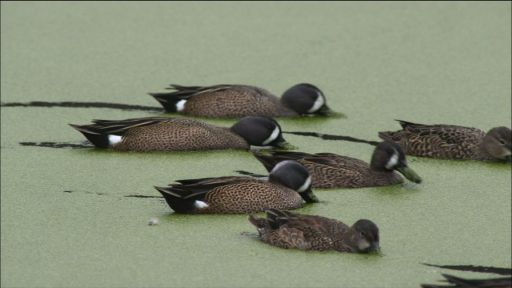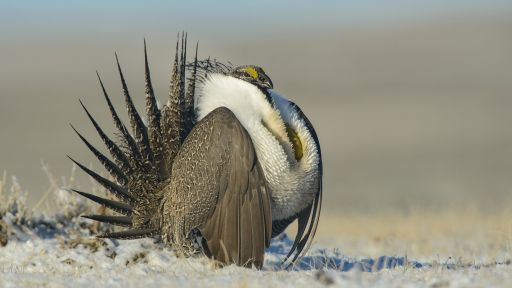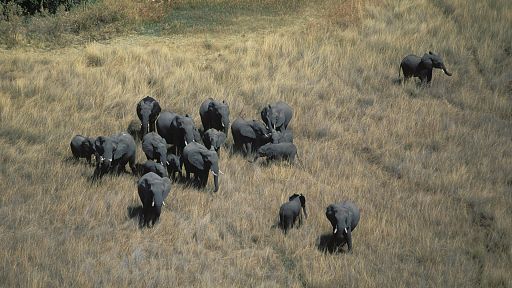Uditha Hedige, a tsunami survivor, was eating breakfast at his hotel near Yala National Park in Sri Lanka when he noticed unusual bird activity and water levels in the nearby lagoon rising. He escaped by heeding the natural warnings and running inland only seconds before the tidal wave broke on the shore.

Where were you when the tsunami hit?
I was in Yala the moment the tsunami hit. I saw some unusual behavior from the animals. First in the morning around 8 o’clock I saw a group of banded storks and black-headed ibis flying like they were confused. I didn’t think at this point this can be a very dangerous thing, because I have seen them do this when they were frightened by another animal or something else. So I thought they were frightened because of something and flying to a safe area. And also, in the morning I saw several, three or four frogs. I saw them just going away from the hotel or leaving their roost. These [particular frogs] are nocturnal and to see them during the daylight was a bit unusual. It still didn’t strike me that this could be a [sign of] danger.
There are a lot of peacocks in the area and you can hear them call. It’s a very loud call and you can hear it from a distance. And I didn’t hear any peacocks call. I thought it was unusual, but I didn’t put it all into one picture. My brain didn’t get the whole picture and get the warning earlier.
How do you think birds and other animals knew that danger was approaching?
I think in the case of birds they use the geomagnetic field a lot, especially when they are migrating or traveling from place to place, but I don’t think … changes of the geomagnetic field happened [here] because it’s just that quick. There’s a good chance that seismic waves came through … the ground and the animals heard this. These seismic waves can create the first or second tremors in a distant area. So when you consider the intensities, it’s very possible to get these seismic waves in this area, and some people say they felt these kind of tremors before the tsunami. … So maybe [those] animals felt these seismic waves beforehand and knew there was some kind of disaster coming and they decided to move away.
I think that some animals felt it differently or some depended on other animals to give them warning to move away. I think animals like big mammals felt it earlier, because I was washed by the wave and ended up in the jungle. I didn’t see any big mammals such as elephants, water buffalo, cheetah, or spotted deer that are normally around. I didn’t see any, which was a bit unusual, so that means maybe they prepared. And we know animals like elephants use infrasound to communicate with each other, especially the low-frequency sounds that can carry through the earth. There’s a very good possibility they heard the sound, and maybe they gave an alarm to the other animals also.
Do you think all the animals knew that something was happening?
With my experience I knew that some animals felt this one differently or they didn’t get a warning, and they waited until the tsunami came. On that morning, about 15 minutes before the wave came, I photographed and saw some bats roosting on a palm tree. I saw a lot of birds in the lagoon in front of the restaurant at the hotel and I was watching these birds while having my breakfast. All of a sudden, around 9 o’clock these birds took off. And with my experience I knew this was not because of a predator or something else. Because birds on the boat side of the lagoon took off all of a sudden. This creates curiosity in me, that this could be something big here.
All of a sudden I saw some water coming through the mouth of the lagoon mouth, and it occurred to me that if the water came out this far, and the beaches are 100, 150 meters (328, 492 feet) away from the hotel, that it should be a big wave. I then stood up and shouted, “Tidal wave!”
How did you know that it was a tidal wave or tsunami?
The birds’ [behavior] was an alarm and I was knowledgeable enough to identify it as an alarm call of a bird or group of birds. It gave me a half of second, maximum half a second, before the wave started coming. When I saw the water coming through the estuary, knowing the area, I knew that this would be a big wave. So I started running and I gave an alarm call to the people, and most of the people started running at that point.
I should be thankful to the birds for saving my life, and because I gave the alarm call to the other people, maybe another few people survived because of that.
Have you heard of other incidents in which animals gave warnings to humans?
There are some incidents or records that some domestic animals also behaved very peculiarly. One of my friends told me there was a person who ran behind their dog because it started running away from the ocean. He ran to catch the dog, and both man and dog were saved, because this dog was running away from the wave. And things like that. We are not studying the animals well to get what they are trying to tell us. And now we have been neglecting these animals and we have lost our bond. I think we should communicate to each other … the animals still do, we are just ignoring them. So if we study them more and learn about their alarm calls, we will be safer.
I think all the animals benefited from each other because I think some animals felt this disaster before others, so they gave an alarm call to the others. And working as a unit, they managed to survive. I don’t think that animals were addressing only other animals. They must be giving the warning to us. … If we still manage to identify these other warnings from these animals, I think we have a pretty good chance of surviving a disaster like this or for example … global warning, there’s a lot of thought going behind that, things like that. So what I think we should do is we should study these animals more … animals and the other wildlife, plants and things like that. So we can have a better understanding of these animals and their behaviors. So changing of behaviors, we should see what caused it, and then we can have a better alarm system than this.

